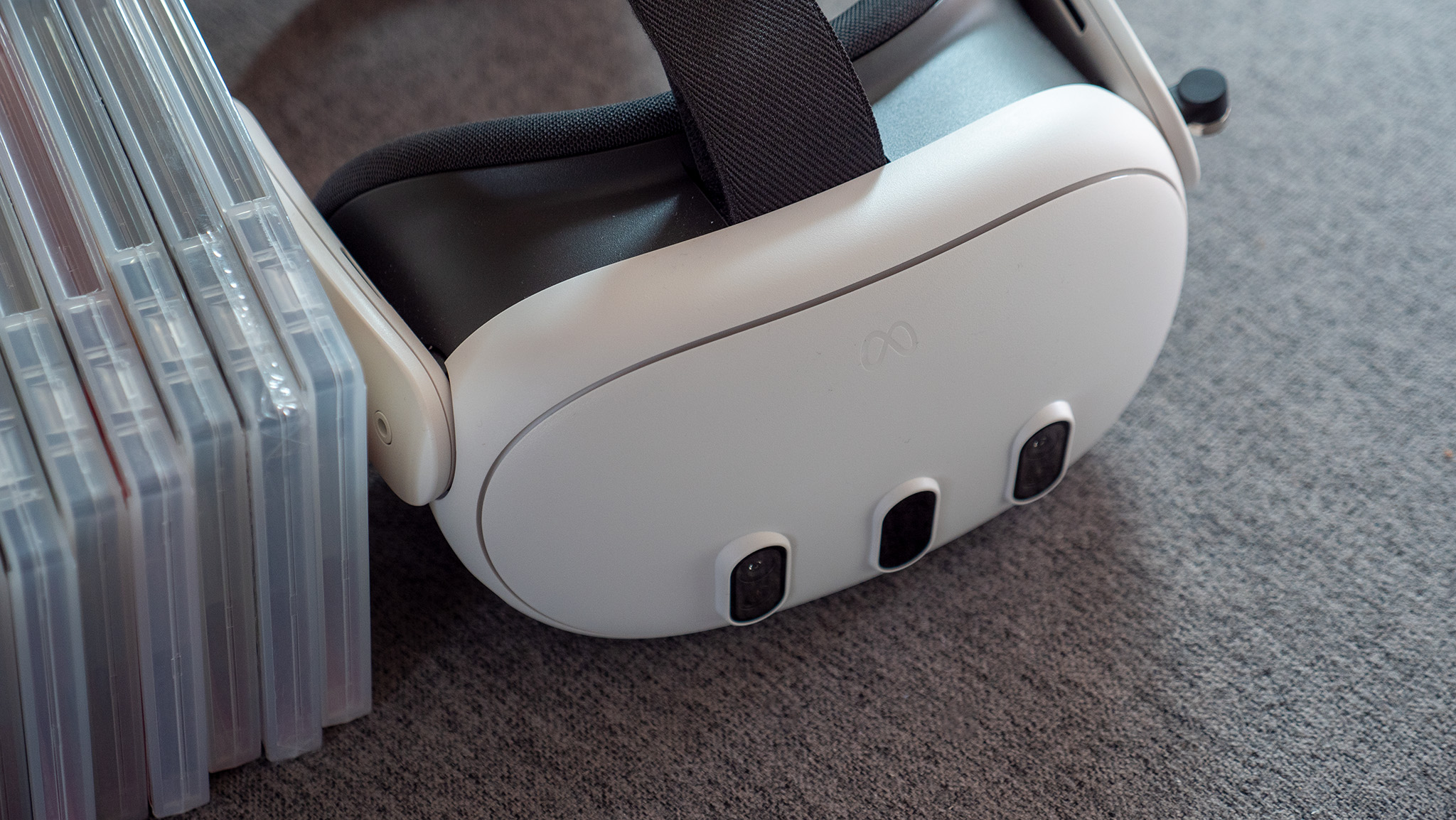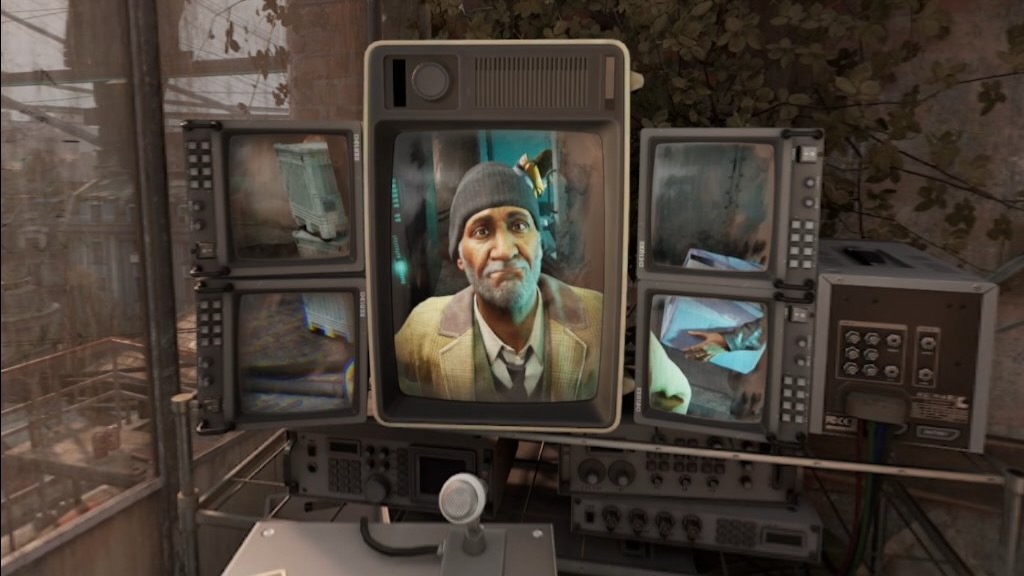
Meta is actively working on bringing cloud VR gaming to Meta Quest. Its long-rumored "Avalanche" app briefly appeared on the Quest Store in October with old Oculus Rift games like Lone Echo and Asgard's Wrath before Meta removed the app.
Alternately called Avalanche or Project Razor, this remote streaming service first leaked in 2022 and has popped up in code and experimental settings menus since then, before the recent leak spotted by UploadVR's David Heaney.
Meta has banned third-party cloud streaming apps like Plutosphere from the Quest Store, as it did with Virtual Desktop before launching Air Link. Meta clearly intends to launch cloud streaming on Quest when it's consumer-ready, enabling higher graphics than the Snapdragon XR2 on the Quest 3 and Quest 3S can natively handle.
In my case, I'm not sure if I'll see Avalanche as anything more than a fun, high-latency novelty to briefly try unless Meta uses this service to expand beyond years-old Oculus Rift games.
Meta and Microsoft have brought flat-screen Xbox games to Quest via cloud streaming, but I want the partnership to go further. Avalanche would become much more compelling if the Quest streamed VR ports of AAA video games, fulfilling the promise that the PSVR 2 failed to deliver.
How Meta Quest cloud streaming would work
We first heard rumors of Oculus bringing AAA games to Quest in 2020: Facebook VP of gaming Josh Rubin discussed streaming games "from a computer, over your Wi-Fi, to your face," but also mentioned the "incredible amount of challenges that need to be overcome to get there."
That same year, an "Oculus Avalanche" code string was first spotted in the Quest v24 firmware back in 2020, though it took until 2022 to understand the reference.
Then, VR analyst Brad Lynch revealed Project Razor while leaking the Quest 3 in 2022, describing it as a "partnership between Meta and US-based ISP/MNOs, i.e. Verizon, AT&T, etc., to help build connectivity improvements."
Playtesters would be able to try Lone Echo and Beat Saber — both available on the most recent Avalanche leak — as a "baseline for streamed XR performance" from a "Meta edge network." Then they would test "Cloud Link over 5G cellular networks" using AWS Wavelength.
Eventually, Meta wants to make "cloud-first content" that "would be otherwise impossible" to run on Quest 3 or Quest 4. It's similar to how the Nintendo Switch streams games like Assassin's Creed Odyssey and Hitman 3 that its hardware can't handle.

It's unclear whether Meta will rely more on traditional internet streaming or 5G connectivity for the final service. Just before its launch, Quest 3 FCC filings suggested Meta had tested a "5G scan" from a 10GHz 5G mmWave radio to the headset.
Meta's official spec sheet for the Quest 3 doesn't mention 5G, only Wi-Fi 6E; we assume the Quest 3S has the same standards.
In either case, the challenge for Meta will be the inevitable latency and high ping that comes with cloud streaming, depending on everything from your internet connection speed to your distance from Meta servers.
For traditional gaming, you can naturally adjust for the input lag, but any delay between your body/controller movement and avatar actions in VR leads to confusion and nausea, something I experienced myself when testing Plutosphere in 2022. Meta would need to use edge computing to combat this in some way.
We also don't know how much Meta will charge for this service. Since it already has Quest Plus for a basic library of free games, it could easily launch a Quest Plus Ultimate service where you pay extra for streaming.
What I want out of Meta Avalanche: True AAA gaming
PC VR games historically sold poorly compared to Quest games. Even after Oculus Link cables unlocked PC VR on Quest, people either didn't have the requisite hardware or found Link too annoying and glitchy and preferred the convenient wireless trade-off.
Meta Avalanche could unlock the early history of wired-only VR experiences that only a handful of SteamVR gamers play these days. But since most VR devs have transitioned to Quest ports first and foremost, there aren't that many to get excited about.
I'd love to stream SteamVR games on Quest like Half-Life Alyx, Microsoft Flight Simulator, and Star Wars: Squadrons without stealing my partner's PC rig. However, those only work through a third-party app; I doubt Meta could bring these games onto its official Quest Plus or Avalanche platform.
When I originally reviewed the PSVR 2, I assumed and hoped it would keep delivering AAA VR ports like Resident Evil 8 and Gran Turismo 7. Instead, Sony has largely abandoned it, never recapturing those glorious early days of VR when you could strap on a headset and play ports like Skyrim and No Man's Sky.
Meta is my last hope for AAA VR ports without a PC, but the public failure of projects like GTA: San Andreas VR proves that it can't do this on its own.

My pie-in-the-sky dream is for Meta and Microsoft to team up to pick up Slack and start streaming VR ports of its most popular first-person titles on Quest.
Meta already plans to sell a limited-edition Xbox-themed Quest with cloud gaming and Horizon OS headsets from third-party devs. It's not that much of a stretch that Microsoft, which killed Hololens 2 and is reportedly considering an Android-powered MR headset that streams Windows through the cloud, might rely on Meta as a VR gaming partner, either directly or indirectly.
Imagine if Microsoft leased out Minecraft, Elder Scrolls, Fallout, Forza, and/or Halo to be ported officially to VR (while keeping the gameplay the same). They could run officially through the Xbox Cloud Gaming app on Quest headsets, using either its own network or Meta's upcoming Cloud Link.
Either that or Microsoft could make its own Horizon OS headset with Xbox gaming VR ports as an exclusive while still offering the best Quest Store games.
I have no idea what kind of legal and financial hoops Microsoft and Meta would have to leap through to make a partnership like this work; Microsoft could easily decide to stick to its own system, while Meta sticks to Oculus Rift games and future AAA "cloud-first" games made by its studio.
All I know is that most Quest gamers don't need crazy graphical fidelity, or else games like Gorilla Tag wouldn't be so insanely popular. What would make Meta Quest cloud gaming popular isn't Asgard's Wrath or Lone Echo, no matter how amazing those games are; it's Minecraft.
Since Minecraft: Bedrock Edition will finally lose VR support in 2025, it's high time we get an official, updated port from Microsoft on Quest. Even if we can only play it via the cloud.






